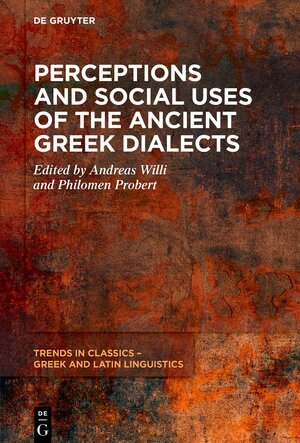
Perceptions and Social Uses of the Ancient Greek Dialects
herausgegeben von Andreas Willi und Philomen ProbertResearch on the ancient Greek dialects traditionally focusses on the grammatical description of these regional varieties. But dialects are more than geographically conditioned varieties of a language: in antiquity no less than in modern times, dialects may assume a range of social meanings, as speakers associate specific forms of speech with communicative situations and purposes that are independent of geographical location as such. This volume aims to complement research on the grammars of the ancient Greek dialects by exploring sociolinguistic and socio-pragmatic dimensions of dialect variation in the Greek world. For example, what factors determine the choice of a given variety, in situations of competition between different dialects—including competition between Koiné Greek and regional dialects? How are regional dialects represented in literature, and what do ancient sources tell us about the para-linguistic associations evoked by the use of a given dialect? How do ancient scholars and grammarians evaluate dialect usage—including ‘unexpected’ dialect features in literary texts? How do social and historical changes impact on the relationship between epichoric and literary dialects?




